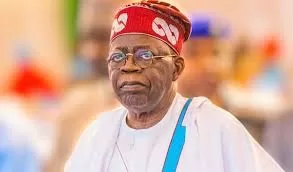
HOW TINUBU-LED FEDERAL GOVT PAID OVER N800M INTO PRIVATE ACCOUNTS IN CONTRAVENTION OF LAW
Available government data from Govspend.ng portal has showed that over N809 million was paid into individual bank accounts by the President Bola Tinubu-led Nigerian government as humanitarian interventions among others.
According to checks, the money was disbursed in over 65 payments made into individual accounts by the government in contravention of the law.
The monies were paid under items such as; engagement of Internally Displaced Persons, Needs assessment of humanitarian interventions, proposal of technical dialogues, renewal of rents, stipends among others .
These monies were paid by the Humanitarian Affairs Ministry, the Presidency, the Niger Delta Affairs Ministry, among others
The following individuals were tracked in the analysis; Abbas Haruna (N10 million), Ogun Cletus (N7.9 million), Kaosindinma Chinyere (N25.6 million), Gana Ahmed (N5.1 million) Joseph Sunday (N5.3 million) Rabiu Ramala (N5.5 million), Amaefule Ann (N8.3 million), Abubakar Isa (N7.4 million), Chidi Stephen (N19.6 million), Abubakar Auwal (N5.3 million), Agbim Bariya (N19.6million), Oshamo Titilayo (N9.1 million), Abdullahi Bala (N5.7 million), Prof Hassan Usman (N7.0 million), Usman Garba (N14 million), Oteri Bala (N8.2 million). Adekan Kazeem (N10.5 million), Muktar Badayi ( N9.7 million), Ojo Olaoluwa N6.6 million, Quadri Taiwo N8.1 million, Ahmed Bomai N26.9 million, Umar Idris N5.3 million, Balogun Taiwo N10.8million.
Others were; Dr Suleiman Abubakar N12.7 million, John Bello N5.5 million, Ahmed Abdullahi (N9.1 million), Ambi Bulus (N7.8 million), Jacob Jonathan (N6 million), Micheal Sunday (N5.5 million ), Sarki Haruna (N5.5 million), Adigwe Augustina ( N5.5 million), Usifoh Sunday (N5.5 million), Taiwo Ademola (N7 million), Muhktar Badayi (N7.1 million), Uko Charles (N12 million), Iyanda Abiodun (N6.3 million), Ngene Bashir (N8.4 million), Umar Idris (N9.9 million), Attahitu Aminu (N6.3 million), Musa Lawal (N6.5 million), Balogun Micheal (N10.7 million), Balogun Taiwo (N6..8 million) and Pam Dauda (N6.5 million).
The office of the Special Assistant to the President on Niger Delta Affairs also paid significant amounts into individual accounts.
The following persons received monies into their accounts from the office of the special assistant to the President on Niger Delta Affairs.
They were; Olu Akanni (N38.4 million), Felix Bonny (N25 million), Chief Biba Piri (N13.3 million), Sylvester Tambo (N9.1 million ), Joseph Evah (N22.4 million), Odiki Jacob (N33.2 million), Reuben Wilson (N26.6 million), Sobamabo Jackrich (N13.3 million), Abraham Ibitari (N19.8 million), Joseph Evoh (N21.9 million), Felix Bonny (N24.5 million), Odua Jacob (N32.5 million), Ebika Bowie (N78.9 million).
Section 713 of the financial regulations act of the federal government notes that; “Personal money shall in no circumstances be- paid into a government bank account, nor shall any public money be paid into a private bank account. An officer who pays public money into a private account is deemed to have done so with fraudulent intention.”
Based on the law, payment of public money into personal account is a contravention and under no circumstances should public funds be paid into private account.
There have been corruption allegations in Nigeria.
Recently, the Minister of Humanitarian Affairs, Betta Edu, was suspended by the federal government and one of the allegations was that monies in the ministry was paid into personal account.Nigeria also ranks 145 out of 180 countries by the transparency international corruption perception index, with a score of 25 out of 100 points.
 Premium News
Premium News